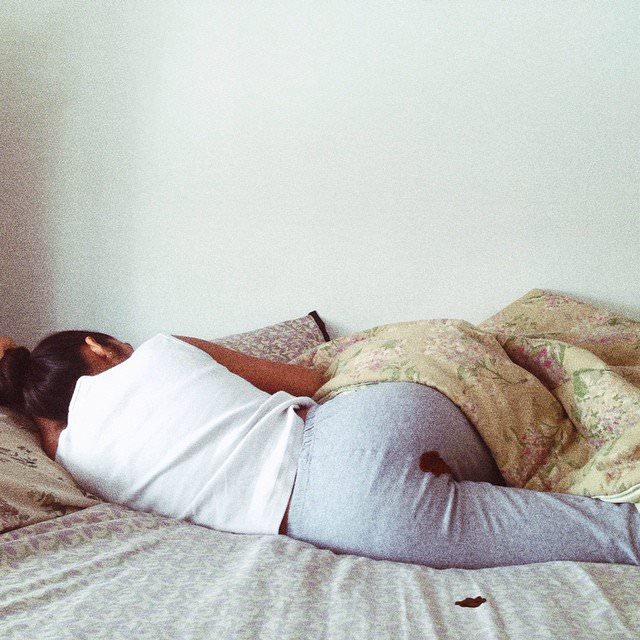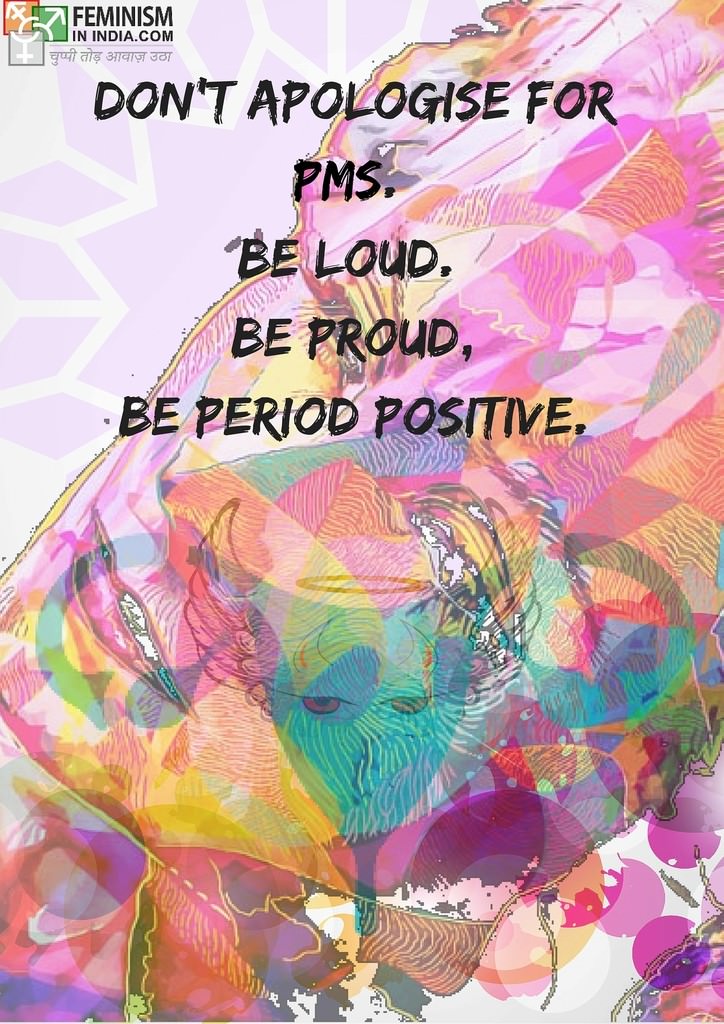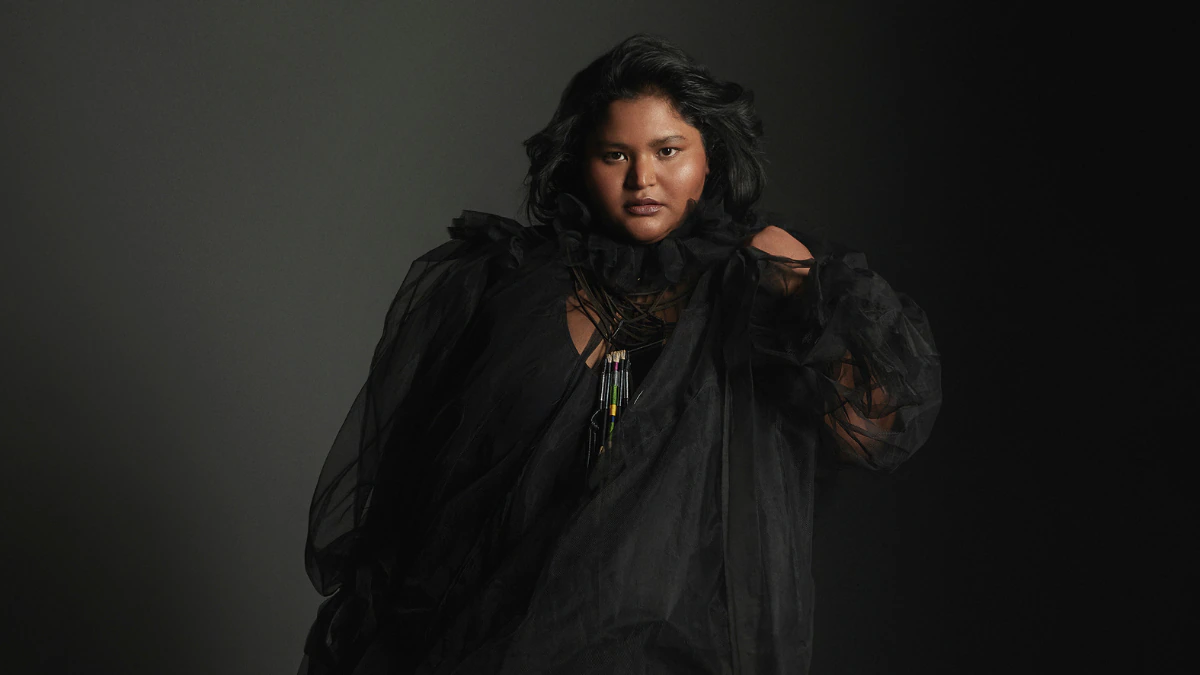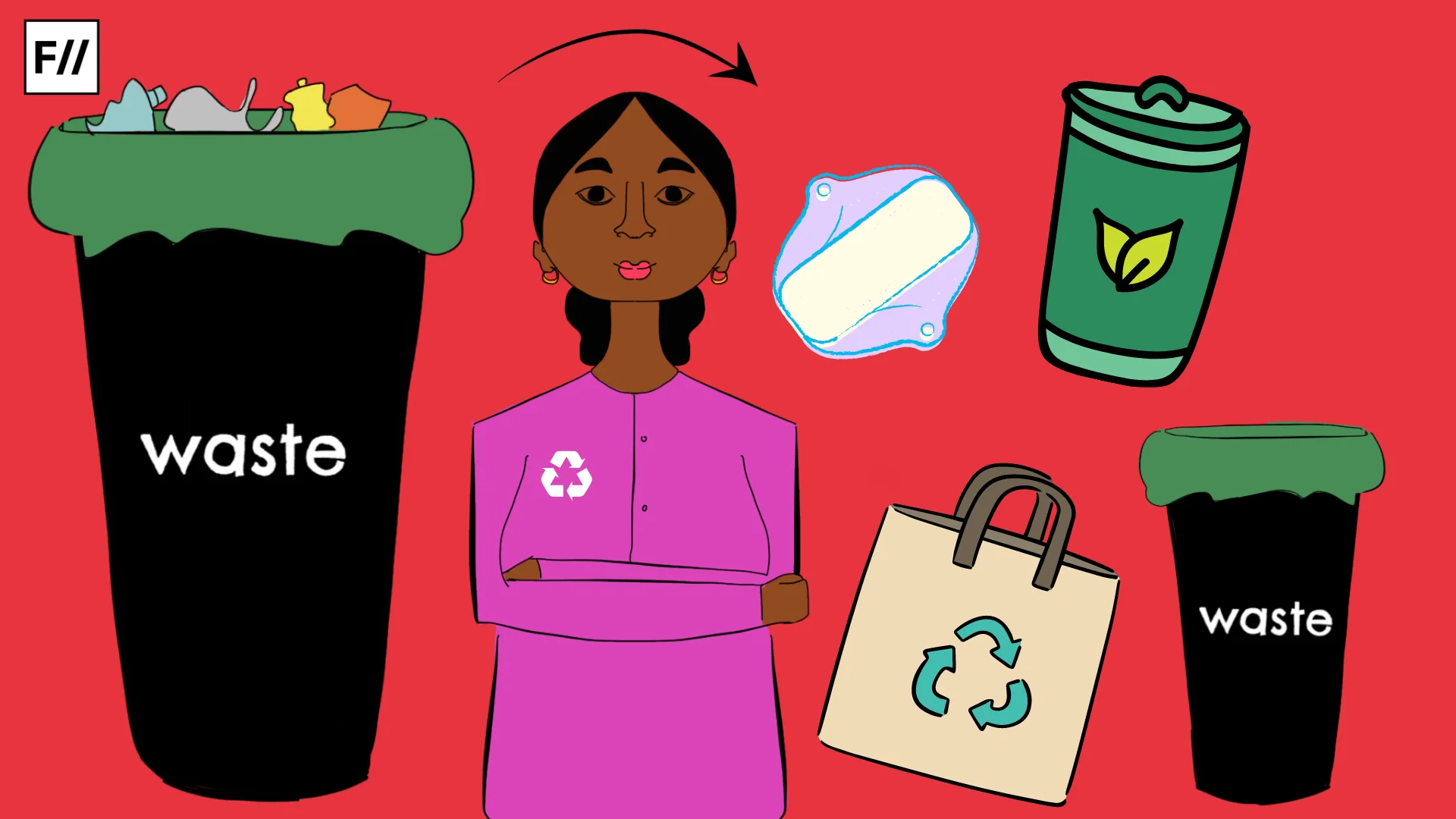Menstruation! The M word that has been concealed, exposed, written about, weaved into poetry and crafted into myriad stories over time.
Menstruation is the periodic discharge of blood and mucosal tissue from the uterus. Also called ‘menorrhea’, the time during which menstruation occurs is referred to as menses. In the context of India, menstruation has social, religious, cultural and gendered connotations attached to it. The taboo and stigma that revolves around menstruation leads to wrong interpretations, false beliefs, lack of informative discussions on menstrual and reproductive health, and major loopholes in accessibility and awareness about menstrual hygiene. The information young girls receive is riddled with myths about menstrual taboos, passed from one person and generation to another. Consequently, these myths hamper the self-esteem and confidence of girls from a tender age.
There is no doubt we need to destroy the taboos around menses for which we need open, honest, transparent, and enthusiastic discussions. There have been several attempts over the years to pop the stigma around period shaming, especially through mediums like TV, social media and newspapers in India. But our cultural, religious, and social beliefs around womanhood, femininity, and motherhood do more damage to period positivity than one can comprehend. This is not only because it turns out to be exclusionary but also because it reinforces a lot of detrimental ideas about women and womanhood.
Let me begin with an important question. Is the woman centric (read ‘essentialist‘) discourse around period positivity really feminist? What should a feminist period positive discourse look like? What should it talk about? There is a lot of discourse around taboo free periods, weaved into many ‘progressive’ and ‘liberal’ ideals about women, equality, and freedom. And this seems very problematic to me.
I will try to explain why.
Do Only Women Menstruate?
First, the general understanding is that only women, in a binary context, get periods. But, that is far from the truth. Women, trans men, and/or non-binary people too menstruate, as this article explains eloquently. So menstruation is not just a ‘women’s’ issue per se and categorizing it that way will not do any good to these intersectional realities.
What about women who do not (or can not) menstruate or do not menstruate like others? Polycystic Ovarian Syndrome (PCOS) is a condition that can lead to problems in women’s menstrual cycle and affect her fertility. Further, there is something called ‘absent menstruation’ that exists. Also known as ‘amenorrhea‘, it is the absence of menstrual periods in some females. When the cultural, social, and gendered meanings attached to menstruation all lionise the ‘essential nature’ of women i.e. to procreate, then think about the damage it does to women who do not menstruate or procreate (for several reasons). It is so important to place period positivity in the framework of the pro-choice debates and women’s reproductive rights at large. Women’s ability to procreate and menstruate has got nothing to do with her willingness (and/or her capability) to have a child, or to not have one. About time we stop calling menstruation ‘beautiful’ because women have the ability to give birth. The glorification of menstruation because it entails within itself the ‘magical’ ability of giving life cannot be put outside the purview of criticism in a feminist dialogue over menstruation, for the ideological construct of motherhood exists simultaneously with the drudgery that a menstrual cycle is.
Look at this Walt Disney’s story of menstruation that starts with the rhetoric of ‘mother nature’ and showcases women’s daily routine as being on the ‘milder side’, literally!
You know, the ever unacknowledged, invisible, and mundane domestic labour that is supposedly so close to a woman’s heart? The number of times this video avoids uttering ‘menstruation’ and uses ‘thooose days’ as a synonym is not even funny, given that it intends to fight period shaming, in the first place.
Representation of Period Positivity in Pop Culture
The representation of period positivity and taboo free menstruation in contemporary popular culture begs a vital question to me. Why this obsession with tight white pants for women in almost all the sanitary napkin ads? What exactly is taboo free in promoting stain free periods? If stains are a taboo, then what makes periods taboo free? To put things in perspective, look at this banned photo of artist Rupi Kaur on her Instagram handle, where she is lying on her bed with her back to the camera. There is a red stain on her pants between her legs. The photograph, which was a deliberate attempt at fighting period taboos was censored by Instagram. If this image of a woman, probably at her unproductive but natural best, is banned, then what is all this period positivity even about?!

(This image is a part of Rupi Kaur’s photo series project for her visual rhetoric course. You can view the full series at rupikaur.com)
If we look at the popular TV commercials, most of them propagate the image of urban, independent, young, working, upper class (obviously!) women, who jump and dance their way to fight period woes. The idea that women ‘can do anything’ and ‘achieve everything’ comes with the burden of doing everything and proving themselves productive with every breath they take. This has deep caste and class undertones, and I will come to this in a while.
My point here is that it is not merely about building women’s confidence, as much as it is about disseminating the idea that women need to ‘keep catching up without slowing down’ to live up to their fight for gender equality. This is exactly how power relations work and remain entangled in the rigid oppressor-oppressed hierarchy. The image of a young independent working woman wearing ‘stain-free-white-pants’ propagates the compulsiveness of being productive and absolutely ‘stain-free’, if you want to be counted as important, and this needs to be seen in the context of the capitalist society we live in; a society where women are deemed fit for certain roles for the benefit of the social order and the nation that is subsumed in so many isms.
Let’s Get Real, Shall We?
Let’s face it! Being period positive is not about loving your periods all the time, it is and should be as much about being able to dislike it and feel comforted by it. It is not about being able to do everything all the time while you are bleeding, it is and should be about the acceptance of not wanting to do anything and still not having to feel any less about yourself. How many times do women have to let go of comments and questions about whether they are ‘PMSing’, simply because ‘they are not at their best’ sometimes, or because they are cranky, moody, annoyed or just not in a mood to give a flying truck to anybody?!
Another problem with the ‘progressive’ discourse on menstruation is that it internalizes women into accepting their role in the social re/production of womanhood, which is very patriarchal in nature. It pressurizes women to do what a strong independent woman is expected to do – menstruate, reproduce, work, cook, act and look sophisticated, and contribute to the socially constructed ideas of family and nation (in the larger context). Obviously, not to mention, while following the cultural, religious and societal rules that are attached to menstruation, i.e. not entering temples, not touching anything in the kitchen, not sharing the bed, to mention just a few. I haven’t come across a single TV commercial that does not tell women to be at their best while bleeding AND touches upon these social exclusions. What this discourse does is that, it ends up erasing the very existence of menstruation in a person’s life. The obsession with remaining stain free and pain free while dancing, jumping, singing, talking your way to fight periods is like pushing them to behave as if they are not menstruating at all – behave like it is just another ‘normal day.’
What about Caste and Class?
And, most importantly, whom does this dialogue on menstruation really serve? This brings me to the pertinent question of caste and class. The narrative around menstruation as a ‘dirty’ secret definitely needs to change, and it sure is changing. There is a visible transformation in the representation of menstruation on popular mediums like newspapers, television, social media, and even in some homes for that matter. But that is strictly limited to an imagined community of privileged class and caste households, who can afford to look at menstruation the way our media tells us to.
What we need to introspect is whether this transformation is really inclusive and intersectional in nature. Because the very notion of ‘dirt’ should make us dwell upon the question: which women are we talking about? If not calling menstruation ‘dirty’ is all it takes for women to feel empowered, then there are a lot of women who are not even taken into consideration here. What about women who are engaged in tabooed and ‘dirty work’ for belonging to a particular caste? What good will it do to them if we stop calling menstruation ‘dirty’ and simply stop at that? Our work around menstruation has to be inclusive of the problems arising out of the experiences of the most oppressed sections of the society, and that might not necessarily come with calling menstruation beautiful! Our period positive movement has to broadly encompass the real material problems that some sections of the society are facing, like having no toilets to go to at all, experiencing untouchability and being called ‘dirty’, not having the basic means and money to afford sanitary pads, etc. We have to understand that simply by the virtue of being a woman, we cannot ‘stand in’ for other women’s experiences. Unless we incorporate and centre our analysis on these intersecting and crucial aspects, the period positive movement is never really going to be about ‘all people who menstruate’.
About the author(s)
Nupur is a graduate in Women’s Studies. Interests include research, academia, gender, sexuality and politics.




